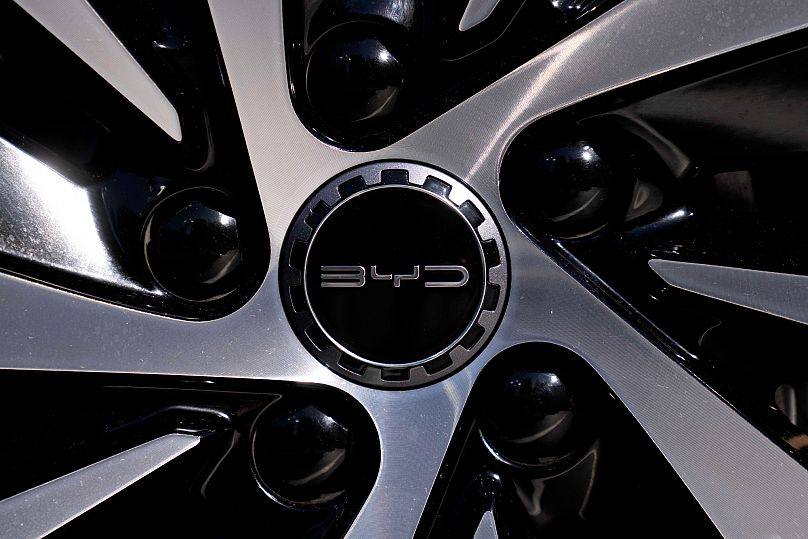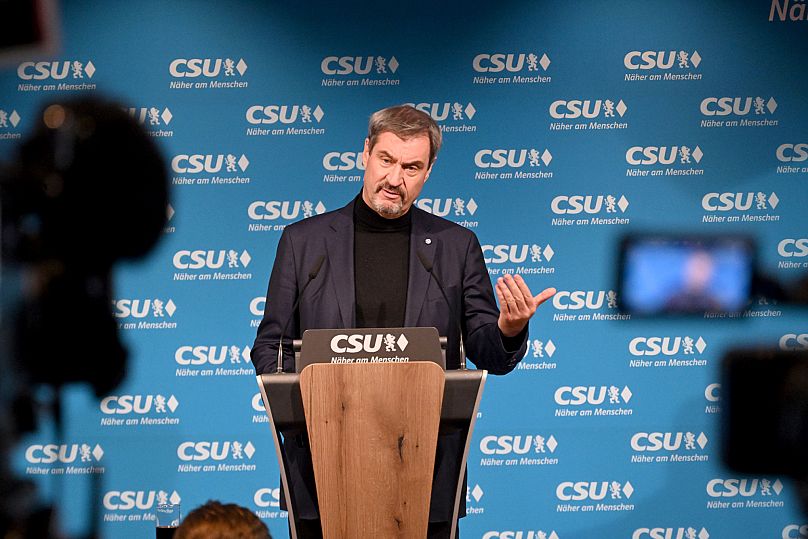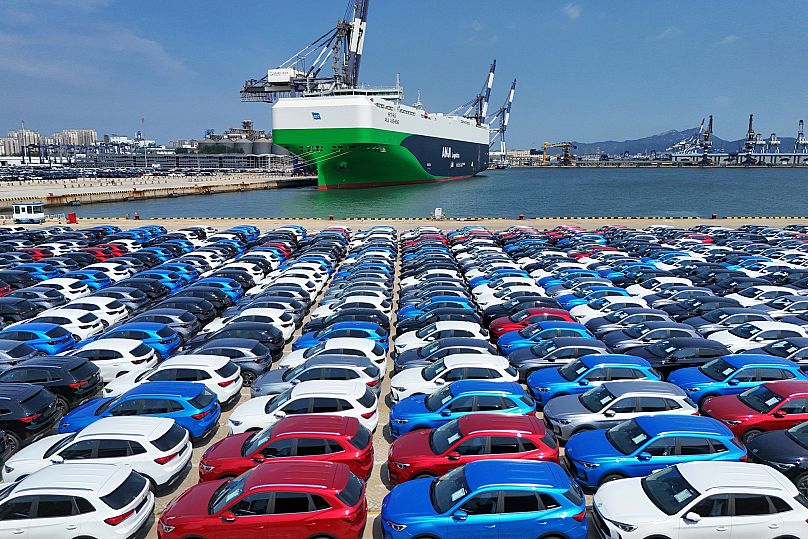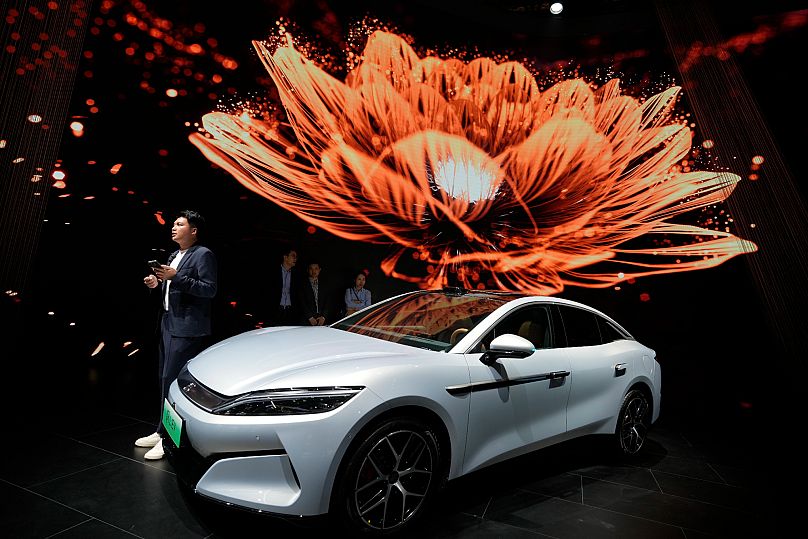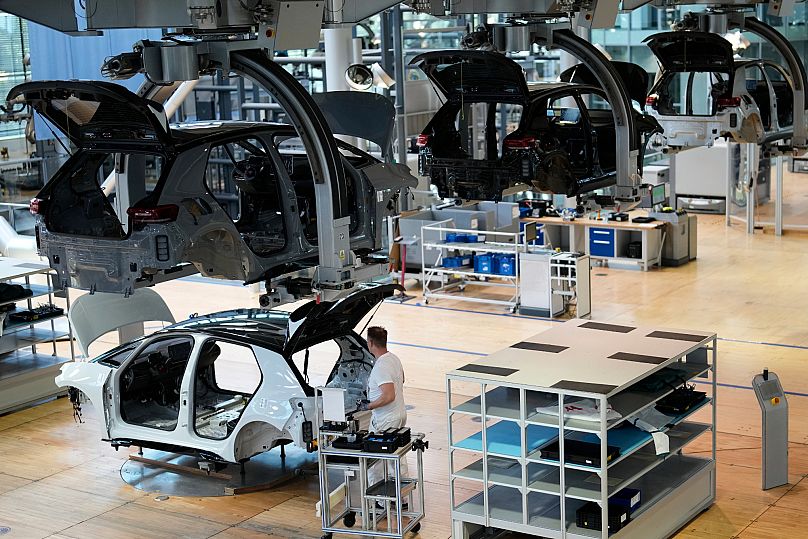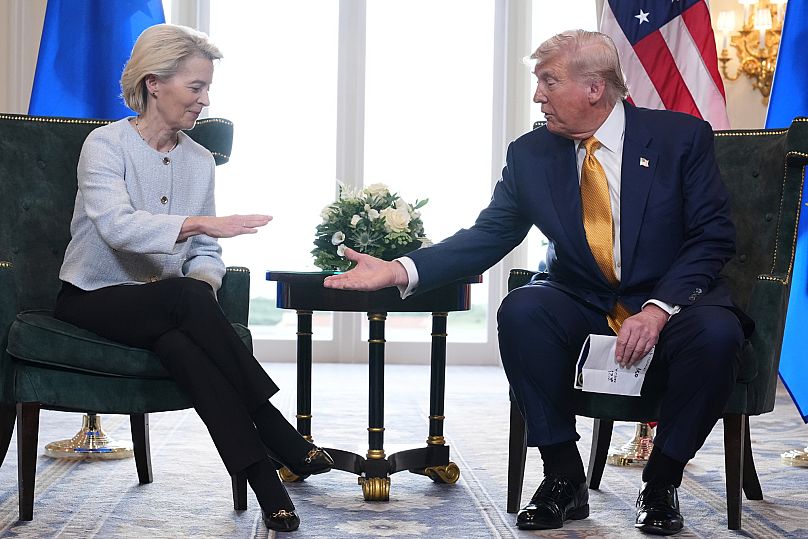Germany's automotive industry in crisis: Politics are to blame, says trade economist
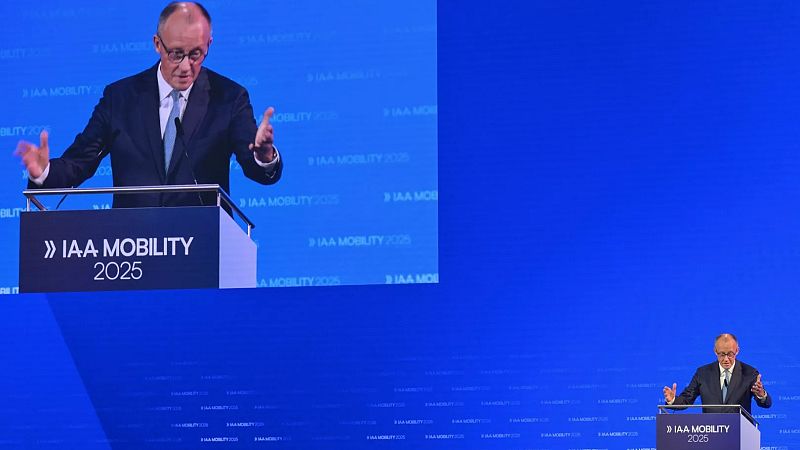
The IAA Mobility international motor show kicked off in Munich with a spectacular display. A dazzling lineup of innovative car models was presented with dramatic lighting and music, setting the stage for what should have been a celebration of progress.
But behind the glitz and glamour, the German automotive industry is grappling with a deepening crisis.
On one front, fierce competition from China is threatening Germany's global market share. On the other, the United States is turning up the pressure with 15% tariffs on German vehicles. At home, political decisions are adding to the burden.
Bavarian Premier Markus Söder responded to the growing concerns with a sharp critique of the EU-wide ban on combustion engines, set to take effect in 2035.
German Chancellor Friedrich Merz has also entered the debate, calling for "greater flexibility in regulation."
But do these pressures spell disaster for Germany's auto industry?
"No," says foreign trade economist Dr. Martin Braml, author of "Free Trade is Finished".
Speaking to Euronews, the trade expert offers a clear analysis: the real reason behind the crisis lies elsewhere. Germany has "put obstacles in its own way."
How can Germany find its way out of a self-made dead end?
Braml stresses the need to first improve Germany's business location conditions.
"The state must set the framework," he told Euronews. "Key factors include wage costs, especially the rapidly rising ancillary wage costs such as social security contributions."
He also highlighted the heavy bureaucratic burden and extensive documentation requirements faced by companies. "Supply chain laws have ultimately placed obstacles in the way of businesses over recent years. This is an area we need to tackle," Braml said.
Another example of destructive economic policies is the approach to combustion engines. The EU plans to ban them in new cars by 2035. Bavarian Premier Markus Söder criticised this ban, calling a rapid CO2 reduction unrealistic. Söder warned that the ban will threaten hundreds of thousands of jobs.
According to a study by auditing firm EY, jobs in the German automotive industry fell by 6.7% year-on-year. Around 51,500 positions were cut within a single year, marking the steepest decline across the entire industrial sector.
Auto industry faces job losses amid policy debate
Foreign trade economist Dr Martin Braml also considers the political decision to ban combustion engines by 2035 unwise. He points out that about half of the vehicles Germany exports are pure combustion engine cars.
"Automakers are not making their profits in the electric sector," Braml said.
He further argued that climate policy should be driven by pricing mechanisms rather than regulatory mandates. "That would be a market-driven process, not a legal intervention. Whether new cars in 2033, 2035, or 2037 are predominantly electric vehicles will then reveal itself."
Braml added that US tariffs and competition from China are not the main problems facing the industry.
US tariffs and rising competition from China
In addition to the shift towards electric vehicles, German automakers are confronted with US tariffs and growing competition from China. "That is, of course, a challenge," says Braml. One potential solution, he suggests, is to establish trade agreements with other countries.
Over the past 15 years, the European Commission has signed numerous trade deals — with Japan, South Korea, Vietnam, Singapore and Australia, among others, Braml notes. However, conducting trade has become increasingly difficult in recent years.
"It's because we have a missionary zeal to make the world a better place and try to regulate everything that has always bothered us in trade agreements," explained Braml.
Climate protection, environmental safeguards, labor standards, and even animal welfare chapters are now part of trade agreements. While these are all "noble goals," Braml warns that "if we apply the standards we have in Europe everywhere, we will end up only trading with ourselves."
Market advantage from E-vehicles
This approach gives the US and China a market advantage. Already, many German automakers watch with concern the breathtaking diversity of Chinese electric vehicle manufacturers. Alongside BYD, a wide range of brands such as Omoda, Gecko, GAC, and XPeng are showcased at the IAA in Munich.
Germany cannot yet compete with the variety of Chinese electric car models. However, economist Dr. Martin Braml doubts whether consumers actually want even more models.
"Chinese cars are still not very popular," Braml said. "Only about one in six Germans can imagine buying a Chinese car."
"BYD recently also scaled back production because sales are weakening, especially in newly opened export markets," Braml added.
German electric car exports soar amid job losses
"At the same time, we see that Germany can produce very good electric cars," says Braml. "In 2023, Germany already had a trade surplus of €22 billion in electric vehicles. We export significantly more electric cars than we import, both in volume and value."
But if German electric car production is doing so well, how can the rapid job losses in the industry be explained?
"An electric car is less complex to manufacture and involves fewer production steps," Braml explains.
As more electric vehicles are built in the future, the industrial value creation in this sector will diminish.
"That means fewer workers will be needed," he says. “This is a structural challenge."
Could von der Leyen have negotiated better?
"The US tariffs are, of course, also a problem," says Braml. Until now, passenger cars could be imported relatively cheaply into the US with a tariff of 2.5%. But now, 15% tariffs apply, while tariffs on imports from the US to Europe have dropped to zero.
"In the end, it may be more profitable for automakers to shift production to the US and serve both markets—Europe and the US—from there," Braml explains.
When European Commission President Ursula von der Leyen struck a tariff deal with US President Donald Trump in July, EU countries including Germany were shocked: the negotiations ended with a 15-to-zero tariff advantage for the US. "This outcome already reflects the current balance of power quite starkly," says Braml.
But the issue goes far beyond trade policy. "The EU didn't have to let itself be so easily pushed around," Braml argues.
Braml recalls how the EU responded firmly to US tariffs in 2018. When President Trump imposed tariffs on aluminium and steel during his first term, "the EU reacted with strength," Braml explains.
"We already had special tariffs under Trump in 2018 and back then the EU responded differently. They imposed counter-tariffs and showed the US that we could hurt them as well." According to Braml, Trump quickly became quite "tame," despite his public claims to the contrary.
However, circumstances have changed. Russia's full-scale invasion of Ukraine rages on right on Europe's doorstep, putting US security guarantees at risk. "In such a situation, a deal is indeed better than an escalating trade war that would divide the West," Braml believes.
However, the tariff asymmetry will not last in the long term, Braml says. Once the situation in Ukraine changes, Europe will seek to renegotiate, says the foreign trade economist. "For now, I fear this was the best deal that could be achieved."
Today


